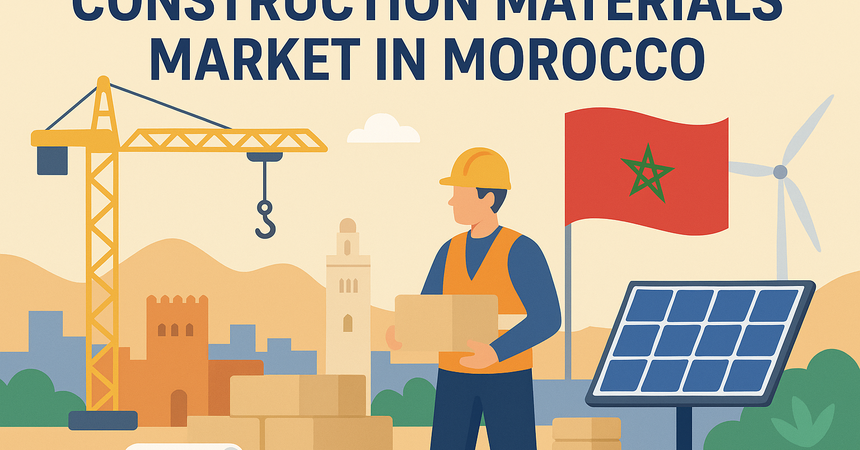Morocco is actively developing its infrastructure and construction sector: new residential districts, industrial zones, roads, ports, and energy projects are being built. According to forecasts, the country’s construction market will grow by an average of 4–5% annually until 2030.
For foreign construction material suppliers, this is a huge opportunity. At the same time, the market is strictly regulated: without the proper certification, products may fail customs clearance or be excluded from tenders.
Morocco’s Construction Sector: Growth Drivers
1. Government investments- Infrastructure and road modernization program.
- Expansion of ports in Tangier-Med, Agadir, and Casablanca.
- Preparations for railway network expansion.
- Rising demand for affordable housing.
- Implementation of social housing programs in urban areas.
- Active investments in solar and wind energy.
- Growing demand for eco-friendly construction materials certified by international standards.
Why Certification Matters for Construction Material Suppliers
- Compliance with quality standards: construction materials directly affect building safety.
- Access to tenders: government projects require ISO and European directives compliance.
- Competitiveness: certified products are prioritized by developers and large contractors.
- Regional market entry: Morocco is not only a domestic market but also a gateway for exporting construction materials to Africa and Europe.
Key Certificates for Exporting Construction Materials to Morocco
International quality and safety standards- ISO 9001 — confirms quality management in construction materials production.
- ISO 14001 — environmental safety, particularly relevant for cement, concrete, and chemical additives.
- ISO 45001 — occupational health and safety.
- CE marking — mandatory for construction materials, equipment, and machinery certified in the EU.
- EN standards — for cement, steel, reinforcement, and insulation materials.
- Industry-specific certificates
- LEED and BREEAM — for suppliers targeting “green construction.”
- Ecolabel — confirms product sustainability.
- ISO 50001 — energy management, important for energy-intensive construction material manufacturers.
Examples of Certification by Material Type
- Cement and concrete → ISO 9001, ISO 14001, EN 197-1.
- Glass and insulation materials → CE, ISO 14001, Ecolabel.
- Metal structures and reinforcement → ISO 9001, EN 10080.
- Finishing materials (tiles, paints, coatings) → CE, ISO 9001, ISO 14001.
- Electrical materials for construction → CE, ISO 9001, RoHS.
Supplier Mistakes Without Certification
- Exclusion from government tenders.
- Customs delays and additional inspections.
- Low trust from developers and large contractors.
- Loss of competitiveness amid rising international players.
Conclusion
Morocco’s construction materials market is one of the most promising export destinations. However, to establish a strong foothold, suppliers must prepare in advance for market requirements and obtain international certificates.Certification is not a formality but a key to long-term contracts, sustainable partnerships, and business growth.
WorldWideBridge manages the entire process of international certification for construction materials. We select the necessary standards, prepare documentation, and provide turnkey support. With us, your business will open doors to the Moroccan market and confidently take its place among the leaders.
